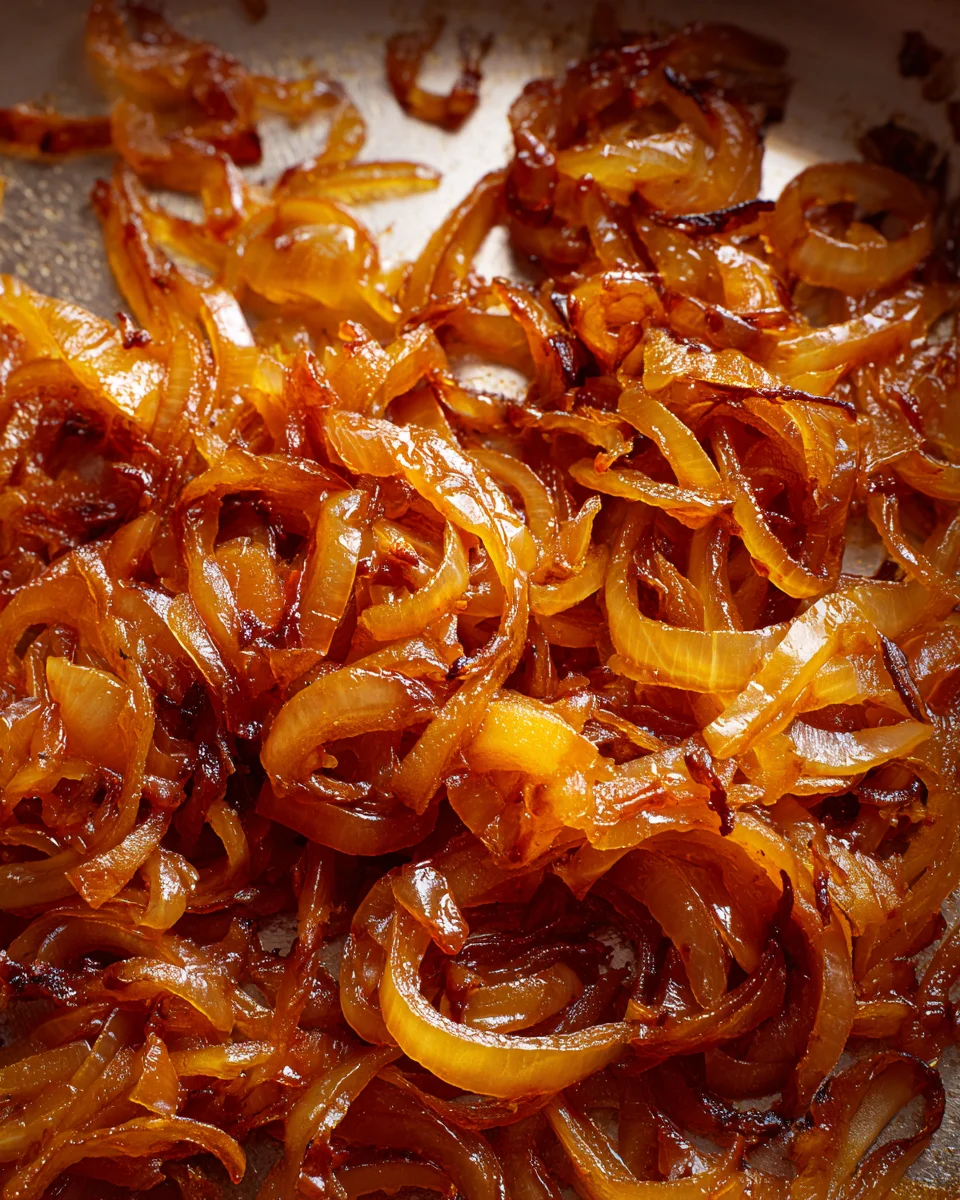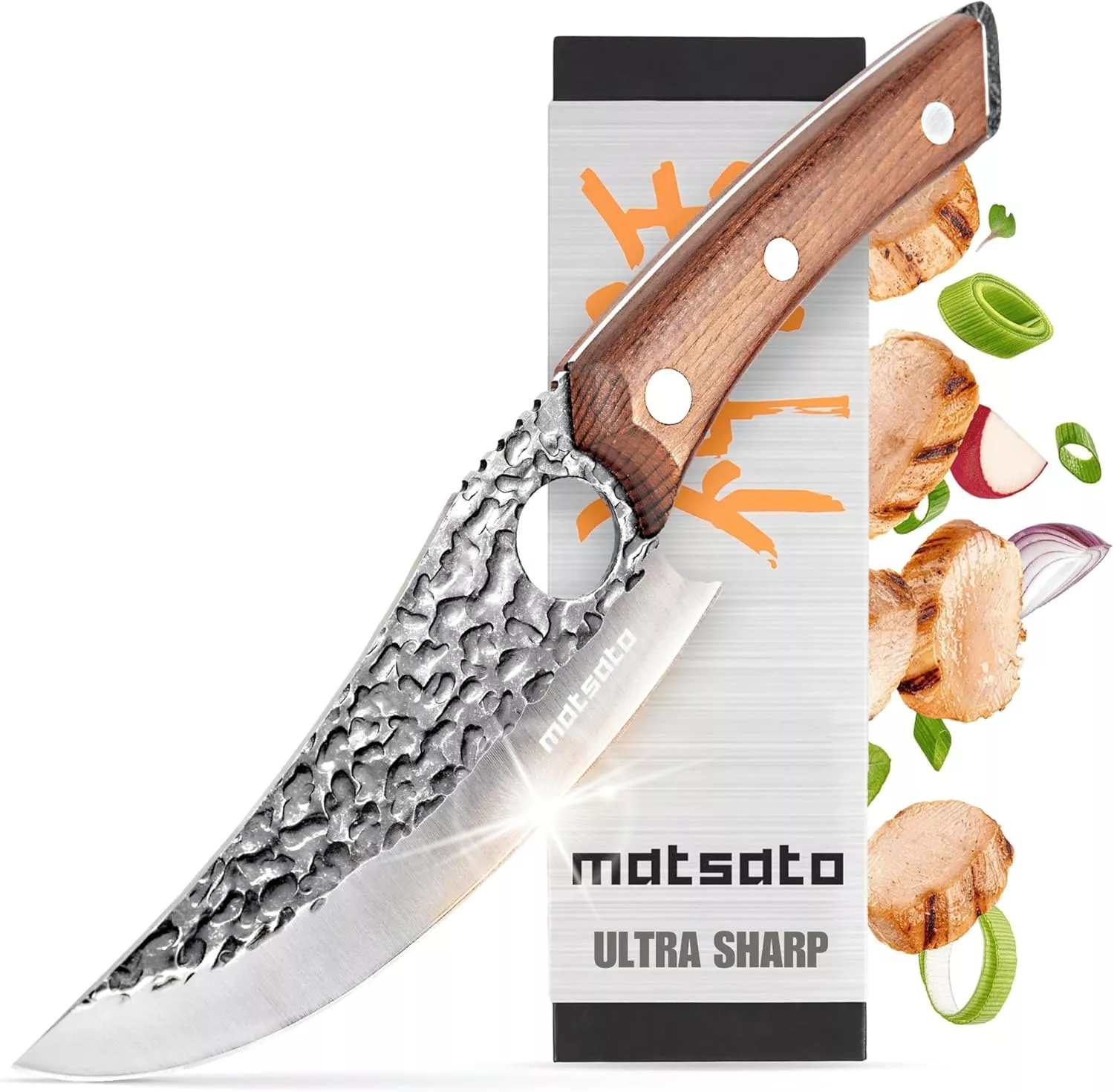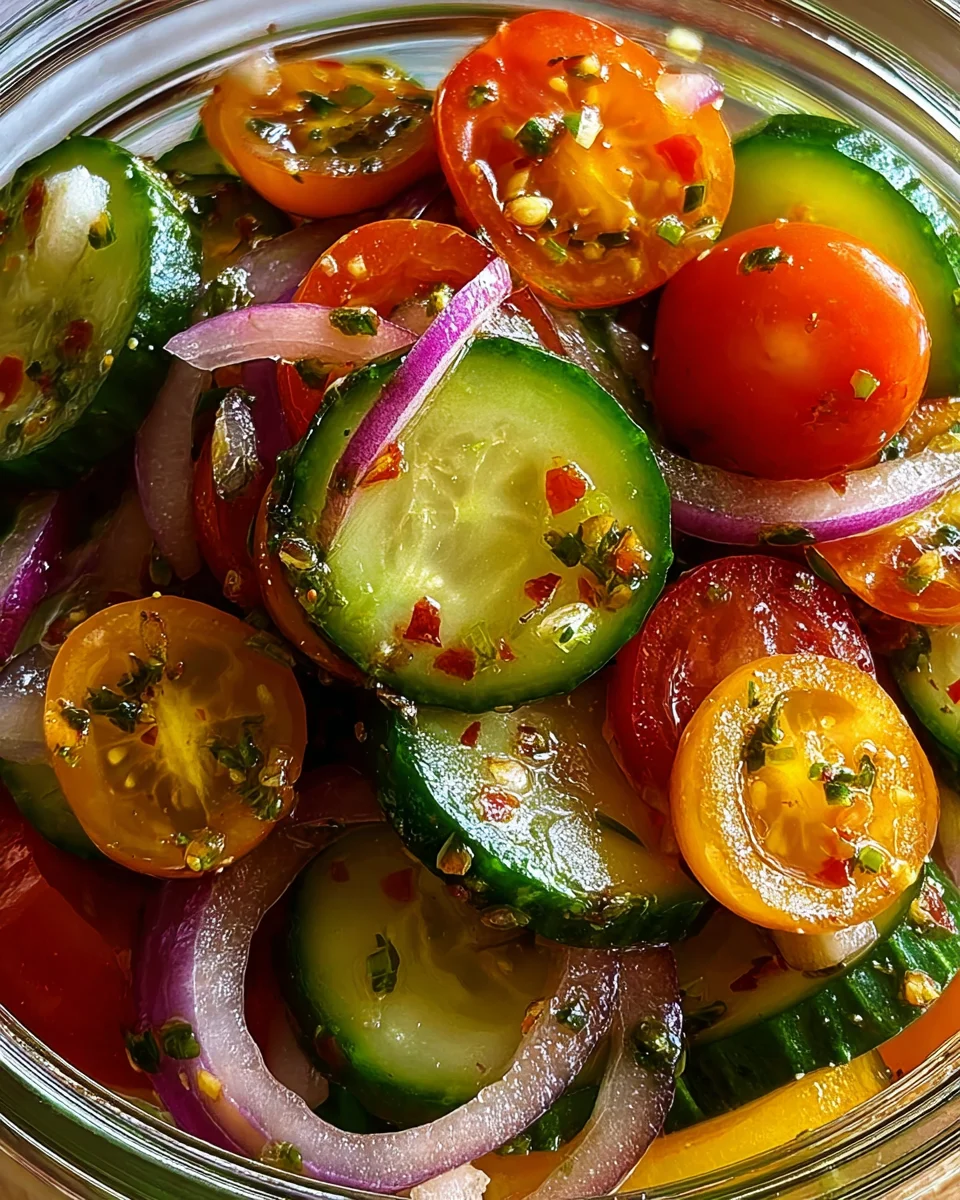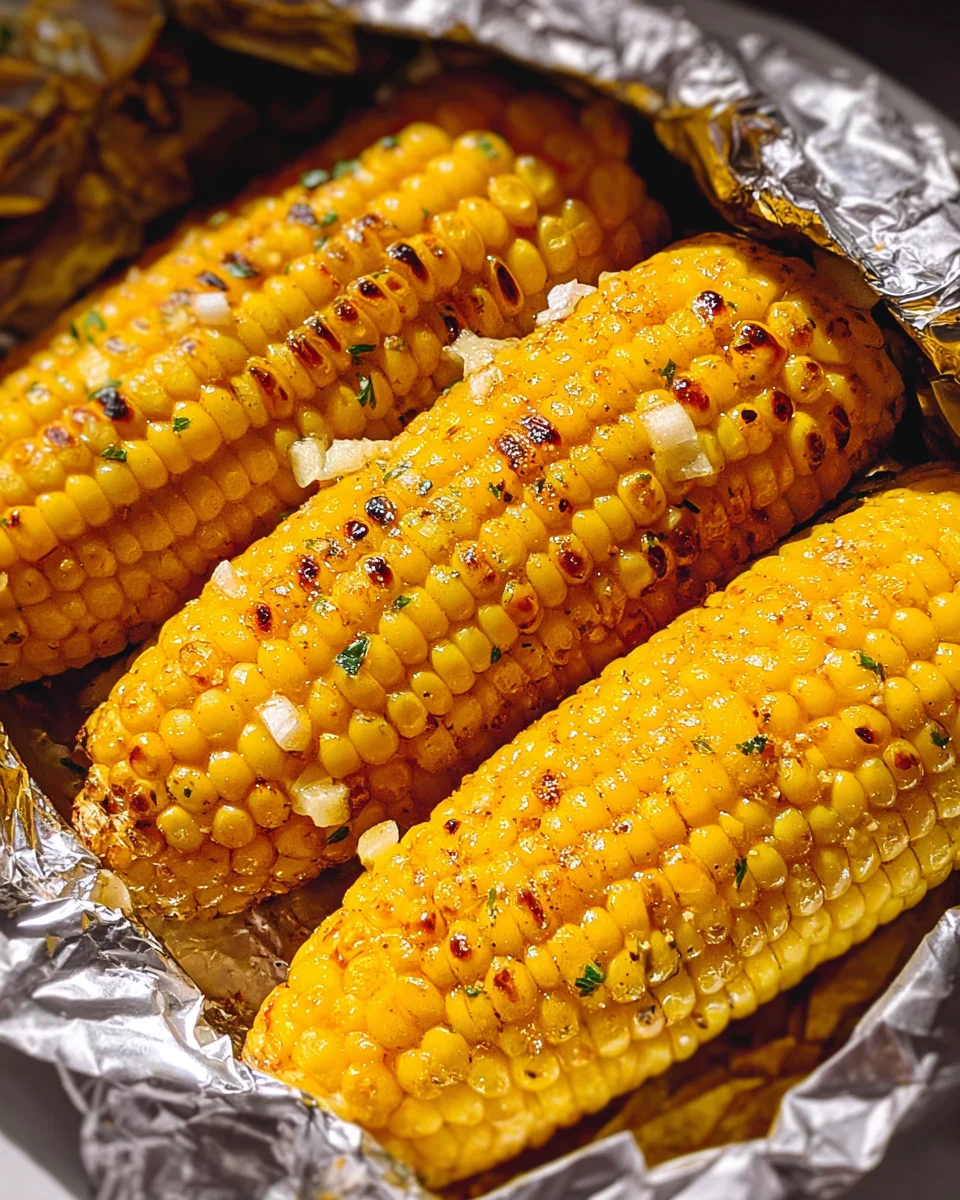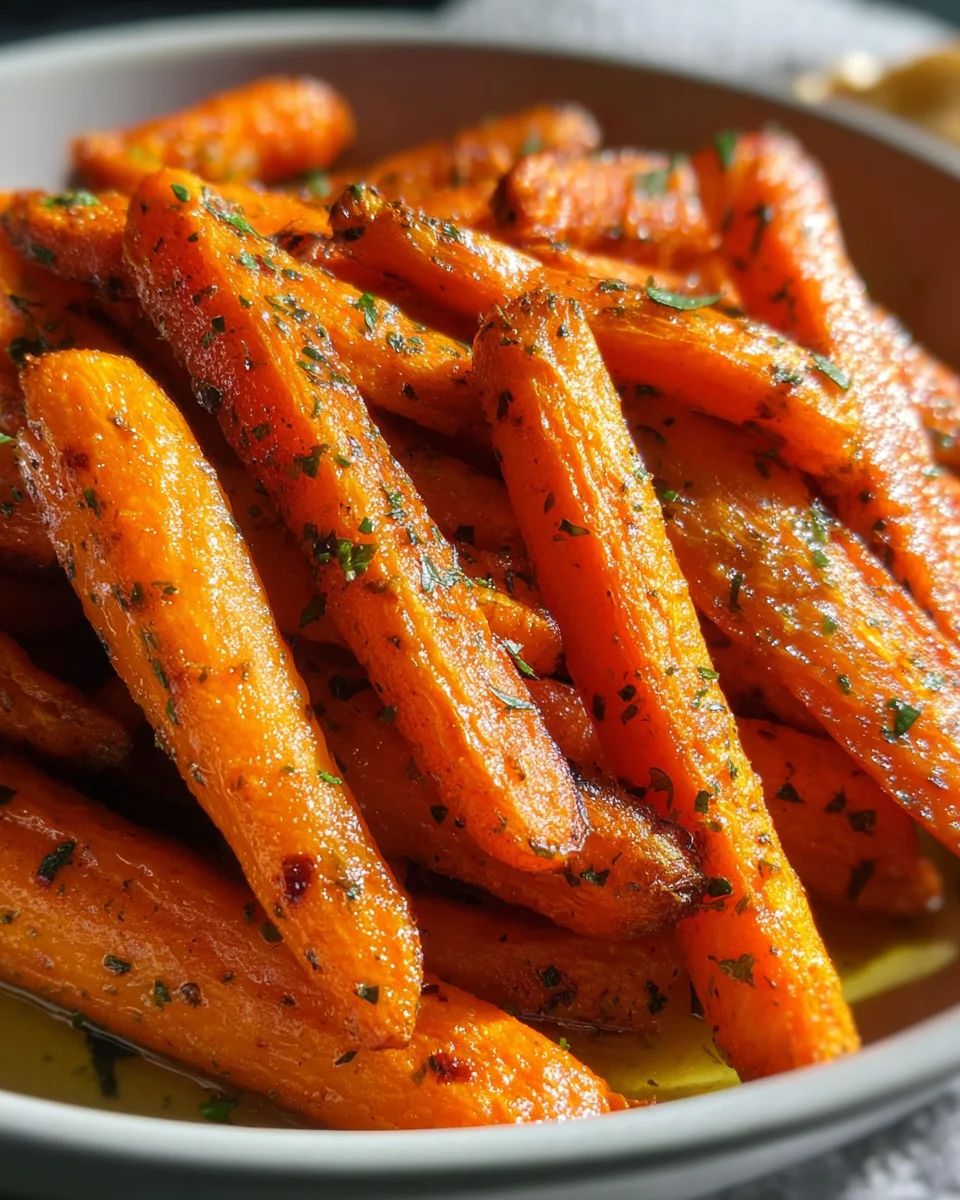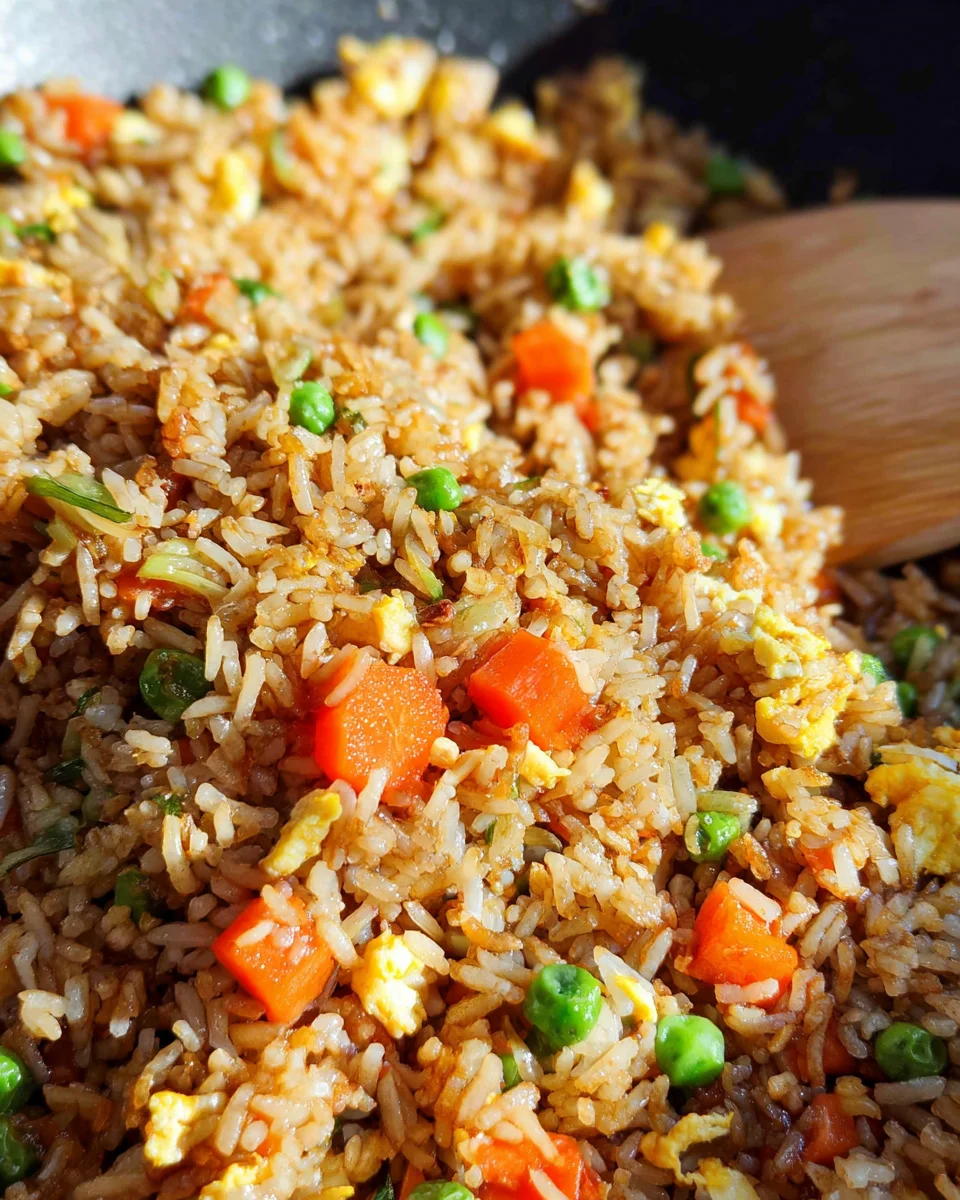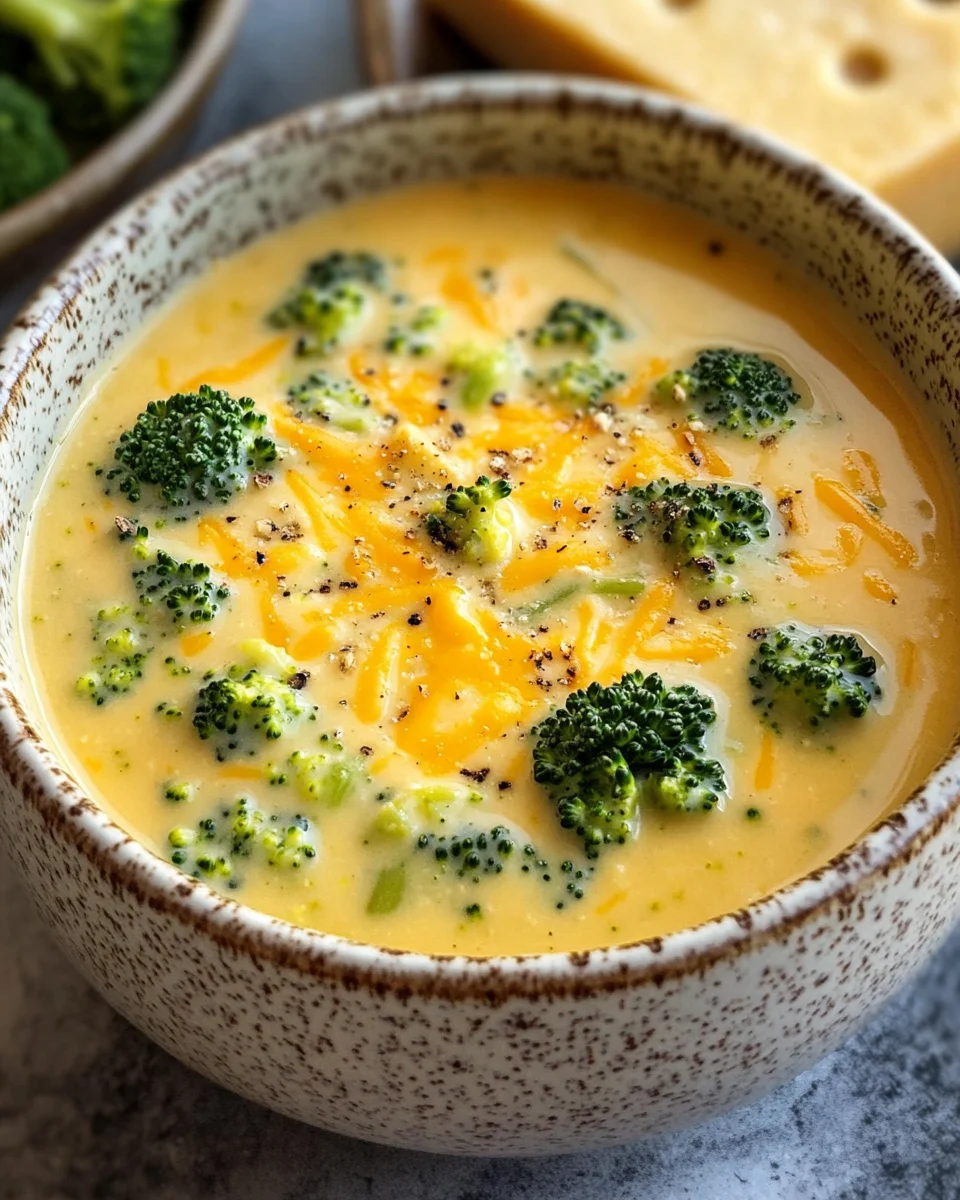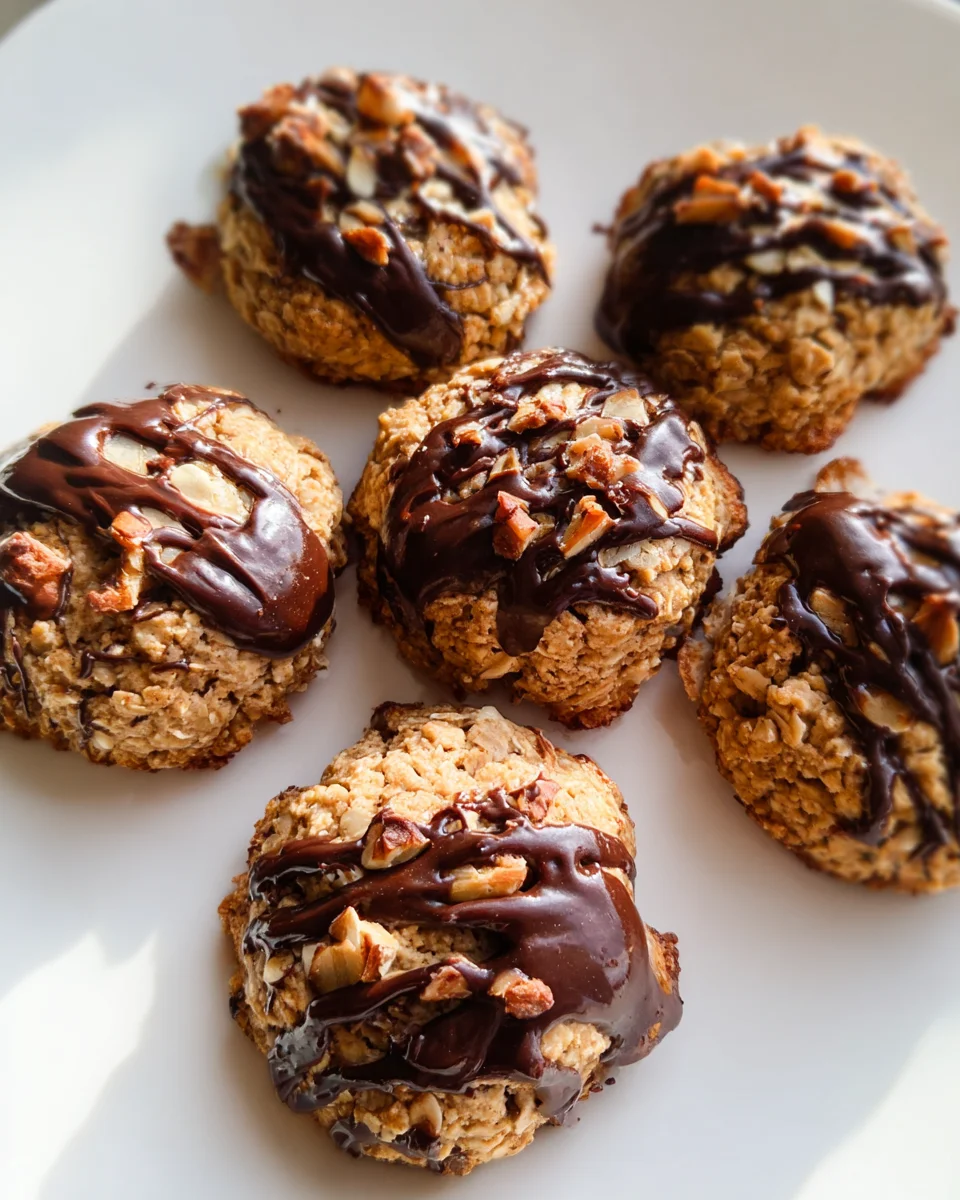Caramelized Onions
The options and versatility of caramelized onions are endless! Use them in a quiche, on a burger, or in a savory tart. The subtly sweet flavor combined with the savory undertones makes these onions incredibly addictive. This recipe provides detailed instructions on how to caramelize onions perfectly, ensuring you achieve that rich, golden brown color and deep flavor.
Why You’ll Love This Recipe
- Easy to Follow: This recipe breaks down the caramelization process into simple steps, making it accessible for all skill levels.
- Flavor Explosion: The sweet and savory notes create a depth of flavor that enhances any dish.
- Versatile Ingredient: Perfect for use in soups, salads, sandwiches, or as a topping for meats—caramelized onions fit into various cuisines and occasions.
- Make Ahead: You can prepare caramelized onions in advance and store them in the fridge or freezer for later use.
- Health Benefits: Onions are packed with nutrients and antioxidants, adding health benefits to your meals.
Tools and Preparation
Before you start cooking, gather your essential tools. Having the right equipment will make this process smoother and more enjoyable.
Grab This Chef Knife Now - Almost Gone!
- Stays Razor-Sharp: Ice-hardened blade keeps its edge longer than ordinary knives
- Superior Grip Control: Unique finger hole design gives you perfect balance and safety
- Built to Last a Lifetime: Premium stainless steel blade with elegant beech wood handle
Customer Reviews ★★★★★
Essential Tools and Equipment
Importance of Each Tool
- Large skillet: A wide surface area allows for even cooking and prevents overcrowding the onions.
- Spatula: A sturdy spatula is perfect for stirring the onions consistently without breaking them apart.
Ingredients
Here’s what you’ll need to make delicious caramelized onions:
For Caramelized Onions
- 2 tablespoons olive oil
- 3 onions (medium or large, sliced)
- pinch of salt
- 1 tablespoon balsamic vinegar
How to Make Caramelized Onions
Step 1: Heat the Oil
Heat 2 tablespoons of olive oil on high heat in a large skillet. Once the oil is heated, add the sliced onions. Cook on high heat for about 10 minutes while constantly stirring with a spatula. The goal is to allow the onions to start browning without burning.
Step 2: Reduce Heat and Add Salt
Reduce the heat to medium. Continue cooking the onions for another 10 minutes while stirring frequently. At this point, sprinkle just a pinch of salt over the onions to enhance their natural sweetness.
Step 3: Slow Cook for Flavor
Continue cooking the onions for an additional 10 minutes on medium or low heat. Stir occasionally to ensure they don’t stick to the bottom of the pan or burn. If necessary, add a little bit of water if they begin to stick. By now, you should have cooked them for a total of 30 minutes.
Step 4: Deglaze with Balsamic Vinegar
Remove the skillet from heat and sprinkle the cooked onions with a small amount of balsamic vinegar. Using your spatula, mix the onions well while scraping any browned bits from the bottom of the pan. This will coat your caramelized onions with added flavor from the vinegar.
Enjoy your perfectly caramelized onions! They can elevate countless dishes with their unique sweetness and depth of flavor.
How to Serve Caramelized Onions
Caramelized onions add a rich and sweet flavor to many dishes. Whether you’re enhancing a main course or looking for the perfect topping, there are numerous ways to serve this delicious ingredient.
On Burgers
- Juicy beef or veggie burgers topped with caramelized onions create an irresistible flavor combination.
In Soups
- Add them to French onion soup for an authentic taste or any broth-based soup for added depth.
As a Pizza Topping
- Use caramelized onions as a gourmet pizza topping, pairing well with cheeses like goat cheese or mozzarella.
In Quiches
- Mix caramelized onions into a quiche for a savory breakfast option that’s both hearty and flavorful.
With Grilled Meats
- Serve caramelized onions alongside grilled chicken, steak, or pork chops for a sweet contrast to savory flavors.
In Salads
- Toss them into salads for an unexpected sweet note, especially paired with bitter greens like arugula or spinach.
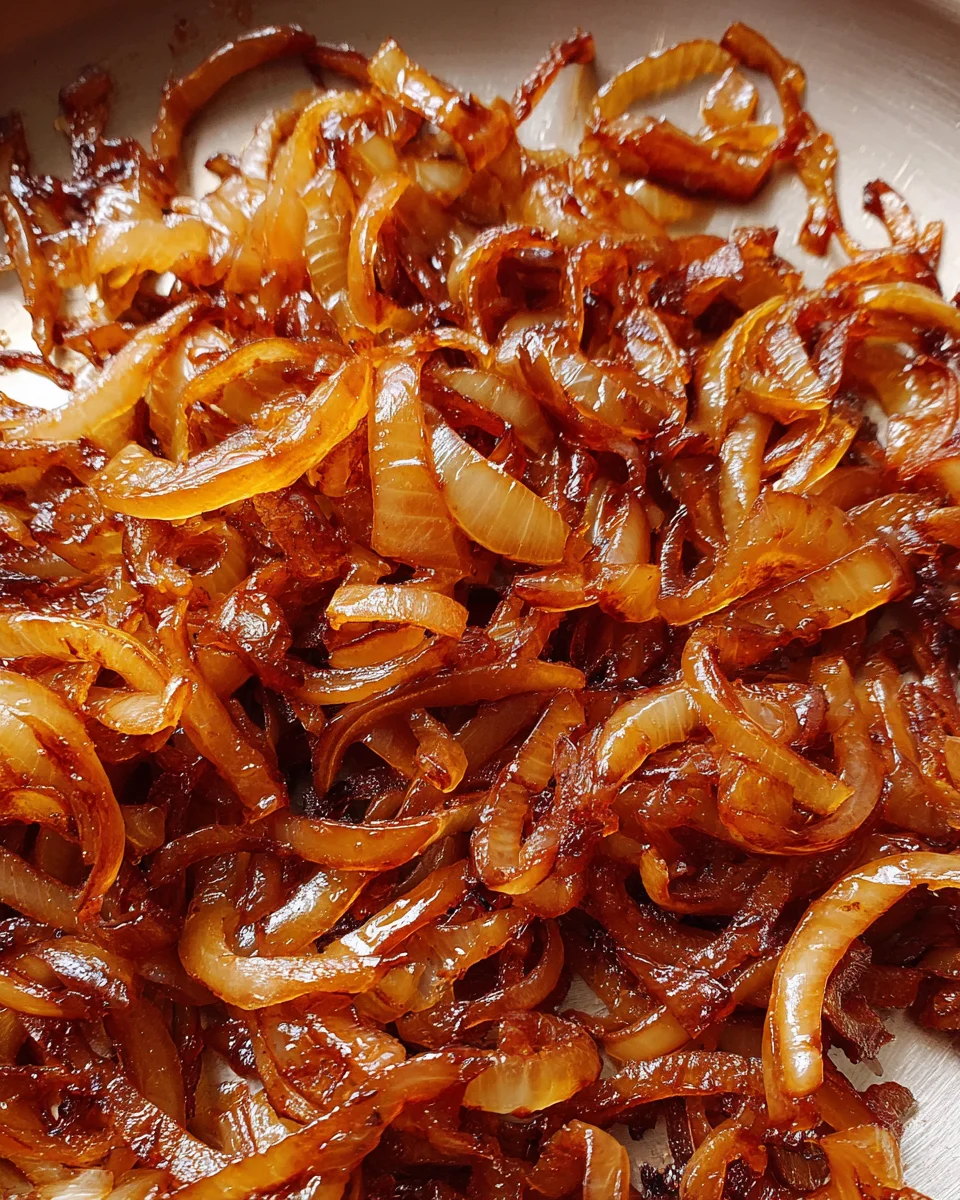
How to Perfect Caramelized Onions
To achieve the perfect caramelized onions, following the right techniques is essential. Here are some tips to help you master this skill.
- Use the right pan: A heavy skillet distributes heat evenly, preventing uneven cooking of the onions.
- Be patient: Allowing time for the onions to cook slowly is vital; rushing can lead to burnt bits rather than sweet caramelization.
- Stir occasionally: Stirring often helps prevent sticking and burning while ensuring even browning.
- Add salt early: Sprinkling salt at the beginning helps draw out moisture, promoting better caramelization.
- Experiment with flavors: Try adding herbs or spices during cooking for additional depth—thyme works particularly well!
- Finish with acid: A splash of balsamic vinegar at the end enhances flavor and adds brightness.
Best Side Dishes for Caramelized Onions
Caramelized onions pair beautifully with various side dishes. Here are some great options to consider when planning your meal.
- Mashed Potatoes: Creamy mashed potatoes topped with caramelized onions create a comforting dish that’s hard to resist.
- Roasted Vegetables: Roasted carrots, Brussels sprouts, or squash complement the sweetness of caramelized onions perfectly.
- Rice Pilaf: Fluffy rice pilaf infused with herbs and finished with caramelized onions adds elegance to any plate.
- Green Beans Almondine: Sautéed green beans tossed with toasted almonds and caramelized onions offer crunch and richness.
- Polenta: Creamy polenta topped with caramelized onions makes an indulgent side that pairs well with meats.
- Garlic Bread: Crispy garlic bread smothered in caramelized onions is a delightful twist on this classic favorite.
- Coleslaw: A tangy coleslaw mixed with sweet caramelized onions provides a fresh crunch alongside heavier dishes.
- Stuffed Peppers: Stuffed bell peppers filled with grains and veggies topped with caramelized onions will impress your guests.
Common Mistakes to Avoid
Caramelizing onions can be tricky, and even experienced cooks can run into trouble. Here are some common mistakes to avoid for perfect caramelized onions.
- Using high heat from the start: Starting with high heat can cause the onions to burn rather than caramelize. Begin on high heat only to get a good sizzle, then lower it to medium for even cooking.
- Not stirring enough: Leaving onions unattended can lead to uneven cooking and burning. Stir your onions frequently to ensure they cook evenly and develop a beautiful color.
- Overcrowding the pan: Adding too many onions at once can trap steam, preventing proper caramelization. Cook in batches if necessary to allow space for browning.
- Skipping the salt: Salt helps draw out moisture from the onions, enhancing their flavor. Be sure to add a pinch of salt midway through cooking for the best results.
- Rushing the process: Caramelizing onions takes time; rushing can lead to burnt bits instead of rich flavor. Allow at least 30 minutes for proper caramelization.
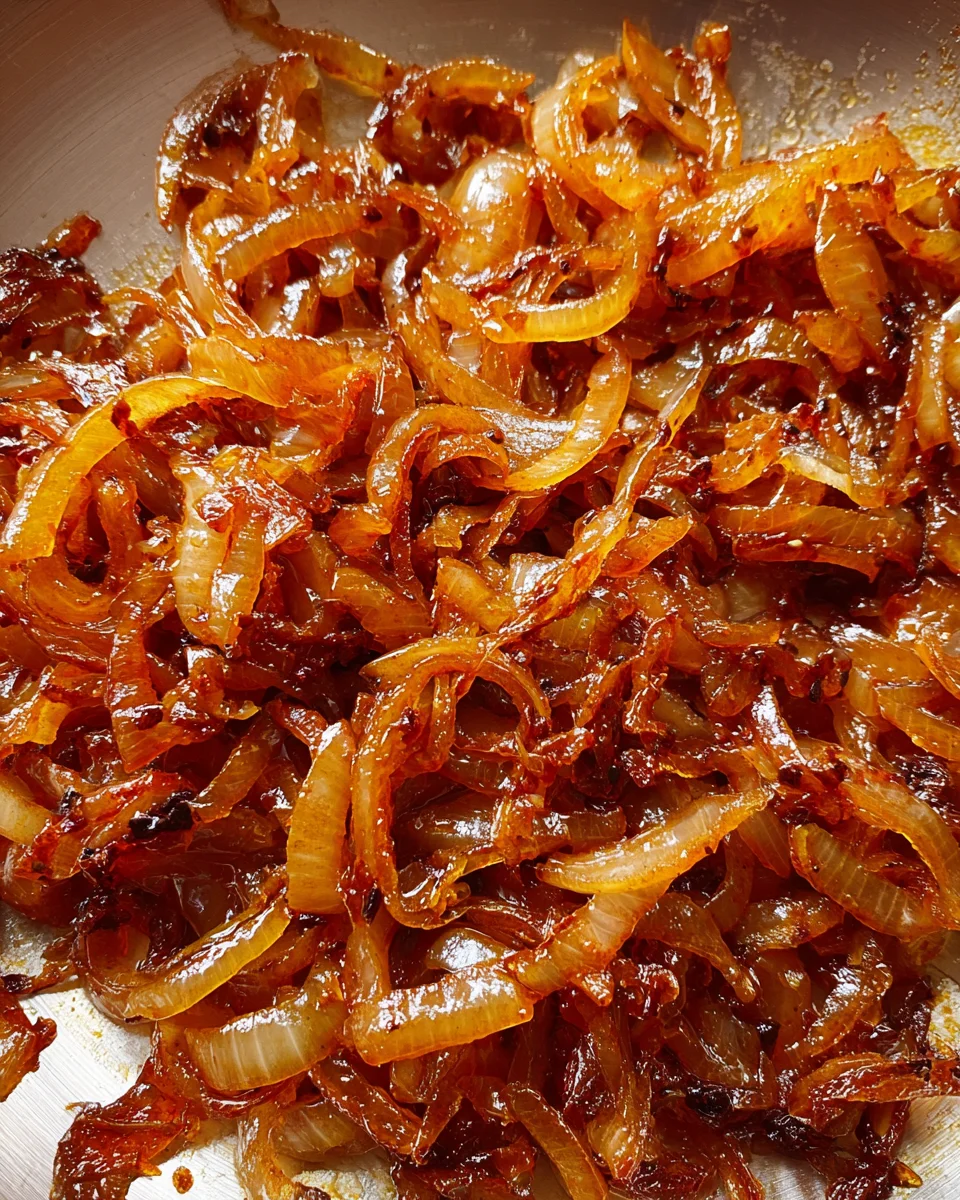
Storage & Reheating Instructions
Refrigerator Storage
- Store in an airtight container.
- Keep in the fridge for up to 5 days.
Freezing Caramelized Onions
- Use freezer-safe containers or bags.
- They can last up to 3 months in the freezer.
Reheating Caramelized Onions
- Oven: Preheat your oven to 350°F (175°C) and spread them on a baking sheet. Heat until warmed through, about 10-15 minutes.
- Microwave: Place in a microwave-safe dish and cover loosely. Heat in short intervals, stirring in between until hot.
- Stovetop: Reheat in a skillet over low heat, stirring occasionally until warmed through.
Frequently Asked Questions
Here are some common questions about caramelized onions that you might find helpful.
How long does it take to make caramelized onions?
Caramelizing onions typically takes about 30-40 minutes, depending on the desired level of sweetness and color.
Can I use different types of onions for caramelizing?
Yes! While yellow onions are commonly used for their sweetness, red or white onions can also be caramelized with delicious results.
What dishes pair well with caramelized onions?
Caramelized onions complement various dishes such as burgers, pizzas, quiches, and even salads, adding depth and flavor.
Can I freeze caramelized onions?
Absolutely! Caramelized onions freeze well and can be stored for up to 3 months when kept in airtight containers.
Final Thoughts
Caramelized onions are a delightful addition to many dishes, bringing warmth and rich flavor that enhances any meal. This recipe offers a simple way to achieve perfect caramelization every time. Feel free to customize your batch with herbs or spices according to your taste!
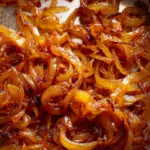
Caramelized Onions
- Total Time: 40 minutes
- Yield: Approximately 4 servings 1x
Description
Caramelized onions are a culinary delight that can transform any dish with their rich, sweet flavor and golden-brown color. Perfect for enhancing burgers, salads, or pizzas, this easy recipe breaks down the caramelization process into simple steps, making it accessible for all skill levels. With just a few basic ingredients and some patience, you can achieve deep, savory-sweet onions that elevate your meals to gourmet status. Use them as a topping for grilled meats or mix them into your favorite recipes for an extra layer of flavor. Follow our guide to master this essential kitchen technique and enjoy the delicious results of perfectly caramelized onions.
Ingredients
- 2 tablespoons olive oil
- 3 medium or large onions (sliced)
- Pinch of salt
- 1 tablespoon balsamic vinegar
Instructions
- Heat olive oil in a large skillet over high heat. Add sliced onions and cook for 10 minutes, stirring constantly.
- Reduce heat to medium and add a pinch of salt; continue cooking for another 10 minutes while stirring frequently.
- Lower the heat further and slow-cook the onions for an additional 10 minutes until they are golden brown and tender.
- Remove from heat and stir in balsamic vinegar, scraping up any browned bits from the pan for added flavor.
- Prep Time: 10 minutes
- Cook Time: 30 minutes
- Category: Side Dish
- Method: Sautéing
- Cuisine: American
Nutrition
- Serving Size: 1/4 cup (60g)
- Calories: 90
- Sugar: 9g
- Sodium: 30mg
- Fat: 5g
- Saturated Fat: 0.5g
- Unsaturated Fat: 4g
- Trans Fat: 0g
- Carbohydrates: 10g
- Fiber: 1g
- Protein: 1g
- Cholesterol: 0mg

